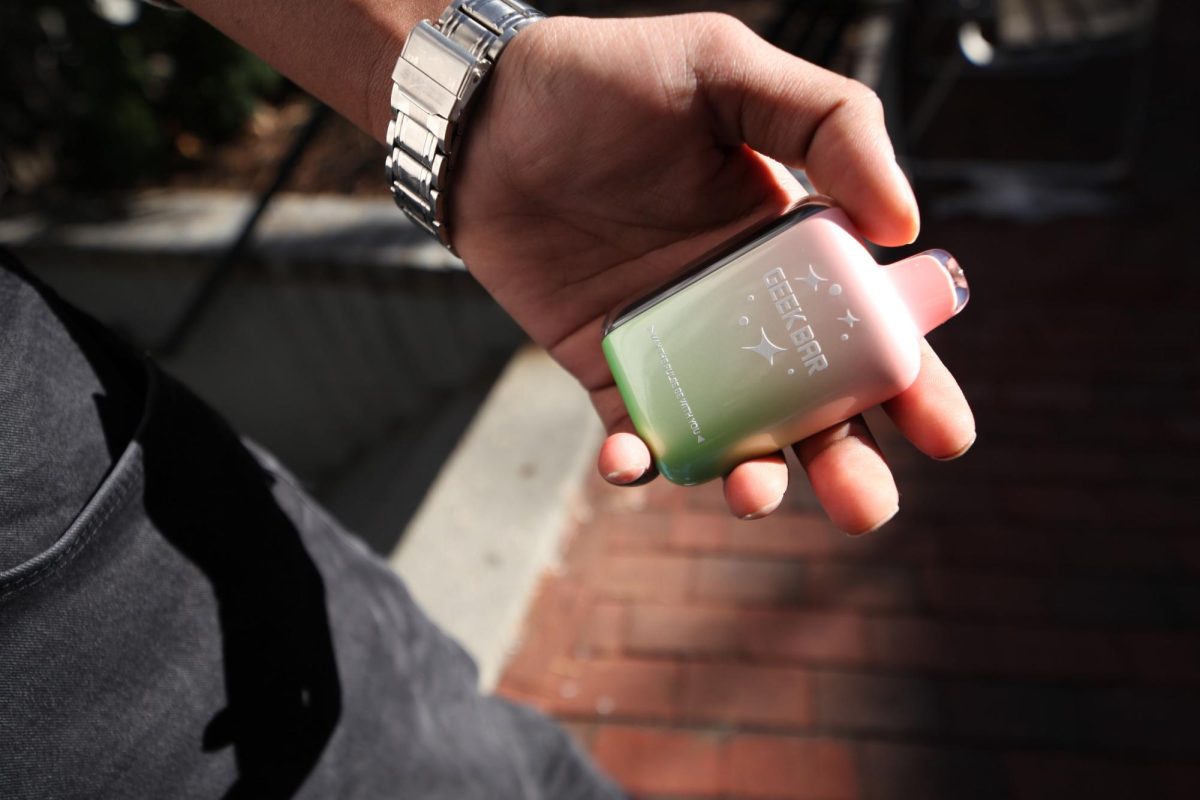In response to the recent discussion of suing fast food establishments because of their supposedly improper marketing strategies, allow me to offer another suggestion to the barrage of lawyers considering legal action: sue Budweiser. I bought a Bud last night, and I didn’t wake up with two spectacularly brainless blondes, the kind who wear bikinis while playing tackle football in the snow. In fact, I wager millions of young men bought beer last night, whether Coors or Bud or Killian’s Irish Red, and an incredibly small percentage of them ended up in a hot tub with a beautiful member of the opposite sex, which is usually beneficial to one’s health. Who is to blame for this discrepancy between what goes on in beer commercials and our lonely nights? According to several lawyers nowadays, it might not be our bad looks, our obnoxiousness or even our drunkenness. Current logic tells us to blame the brewery.
My point is that the marketing strategies of any company are now potentially open to charges of false advertisement and negligence. Fudging the truth and enhancing the image of products has been essential to sales since barter and trading. Without marketing, without trickery and slick sales tactics, nothing in this country would ever be sold. Sales fuel the market, and the market then produces better products. In fast food terms, more and more health-related establishments are becoming popular because they combine health and good taste, while the big companies, McDonald’s, Burger King and Taco Bell, have indeed shown a greater concern for consumer health than they did when they were first established.
Fast food marketing may not be waistline-friendly, it may even be borderline unethical; but it is hardly illegal when you compare it to the advertisements of cigarettes, beer, clothes, entertainment, or toy companies (more on toys later). Only when a company tells a direct lie resulting in a direct cost at no fault of the consumer should litigation take place. The responsibility for obesity will always remain wholeheartedly with the fat consumer. The only way around this is legal mumbo-jumbo designed as — guess what — a deceptive and misleading marketing and popularity campaign for the pockets of lawyers.
Northeastern Professor Richard Daynard, who I’m sure knows far more about the law than I ever will, explains in Nicole Haley’s April 9 article, “Fast food reason for obesity,” that there are parallels between tobacco litigation and the recent suits against McDonald’s. I and several other sub-300 pound fast food lovers fail to see the similarities. Several tobacco companies have lied during sworn testimony about not only the contents of cigarettes but the effects of nicotine on smokers. And their marketing strategies have indeed been illegally misleading; even with their on-pack warnings, Big Tobacco’s conduct has been worthy of litigation. (That being said, I do fear that most tobacco litigation has been not about health, not about personal safety, and certainly not about children; the battle is over money.)
But fast food restaurants are different. They have not lied in court about the contents of their products and they have posted calorie charts for years. (If not viewable right at the counter, any concerned or even remotely educated consumer can ask a manager about the products at hand.) The argument that “fast food establishments employ misleading advertisements that do not allow consumers to make educated decisions” basically says that McDonald’s ads brainwash so effectively as to encourage not only ludicrous decisions but debilitation of a consumer’s ability to read a simple chart.
Where is this great fast food deception? There is no such thing as a “Whopper Light,” and there is no such thing as a “McHealth Cone.” Some foods at McDonald’s are indeed advertised as part of a healthy diet — but the fact is, some foods at McDonald’s just might be healthy when combined with other non-fast-foods throughout a day. (Not to mention the fact that “healthy diet” is a subjective term, as scientists still debate over what constitutes a “good” diet). No consumer — at least not yet, to my knowledge — has sued Slim Fast because it did not immediately reduce fat, or harmed his or her health because he or she was dumb enough to ignore the fine print.
As for the child obesity epidemic and how it relates to fast food marketing of toy products, I can only ask this: what is the minimum age for a fat kid to sue a dumb parent? Selling toys with food only sends the message that “unhealthy food is fun or good for you” after the food has been purchased. The parent sends that message by buying the food and toy; no one sues Crayola when a kid eats a crayon because the parent neglected to teach the kid about edibility. If there is an obesity epidemic, it is due to an epidemic of parental negligence. Any literate parent can determine that daily fast food is dangerous to a child’s health. Any living parent knows that toys can be purchased at Toys ‘R Us, Wal Mart, and various other companies using legal but generally misleading marketing tactics without the combination of high-calorie foods.
Daynard says, “Even if you try to protect yourself, you’re still misled.” Buying Chicken McNuggets instead of a Big Mac is hardly protection. In order to avoid both a “toy craze” and obesity, parents should take full responsibility for their children, not let them watch as much TV as they do, and, if doubtful of the healthiness of a Whopper or Chicken Sandwich, they should go to Subway or, God help them, cook!
Daynard’s idea of printing calories on receipts makes sense. It is an extension of the calorie charts already being printed. And American fast food restaurants could indeed include fine print in some ads that would potentially scare some educated consumers away from fattening themselves. The fact that a sentence or two in fine print, such as “could cause health problems if eaten daily” would probably cover most of these lawsuits demonstrates how weak the complaints are.
It would be wrong to assume all lawyers and professors are money-grubbing people only suing for self-interest; many parties involved in this discourse are speaking purely out of the interest of consumer protection and advertising laws. But it is equally wrong to assume that all fast food restaurants are ruled by evil men trying to grease the universe, or that they are even capable of the outright brainwashing they are accused of. Which is more likely: that big law firms see profit potential by backing the obese against a hundred billion dollar industry, or that a hundred billion dollar industry is capable of igniting a national nimrod epidemic?
The responsibility of the courts is to see that individual decision-making is paramount during the sales process. If fast food loses this oncoming battle, every American loses a fundamental right to fatten him or herself without being brainwashed according to the courts.
Some think the popularity of fast food is due to overwhelmingly aggressive advertising tactics. Others think it’s based purely on taste. Well, it’s a bit of both, but people are not brainwashed into liking the food they eat and returning to fast food restaurants. And Northeastern may indeed be a “vangard” in opening new options in healthy foods for young people. But in the Curry Center, between the sushi bar and D’Angelo’s (by the way, D’Angelo’s and Subway have huge ad campaigns that emphasize health and taste, and without taste they’d have an unprofitable product) you’ll find something that is not misleading: the line at Wendy’s is always bigger.
– Benjamin Kail is a senior journalism major.








